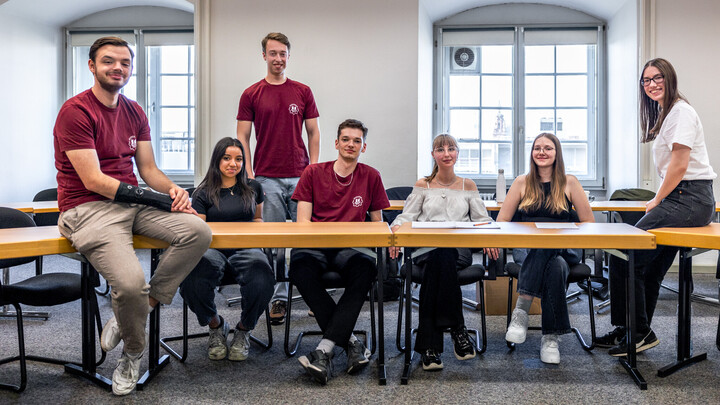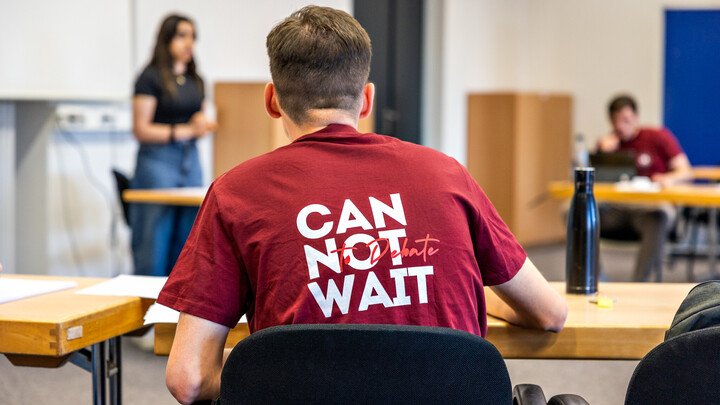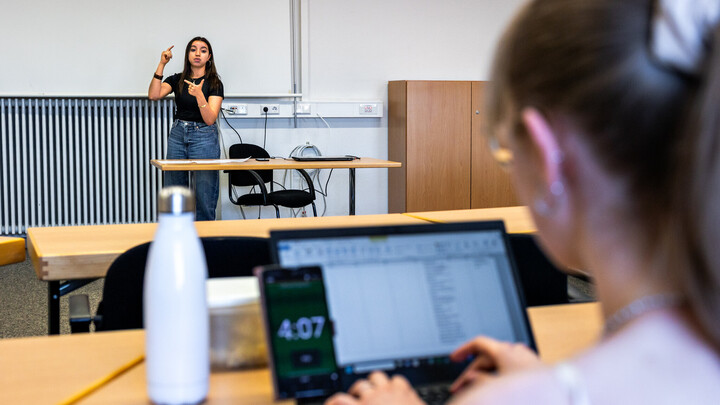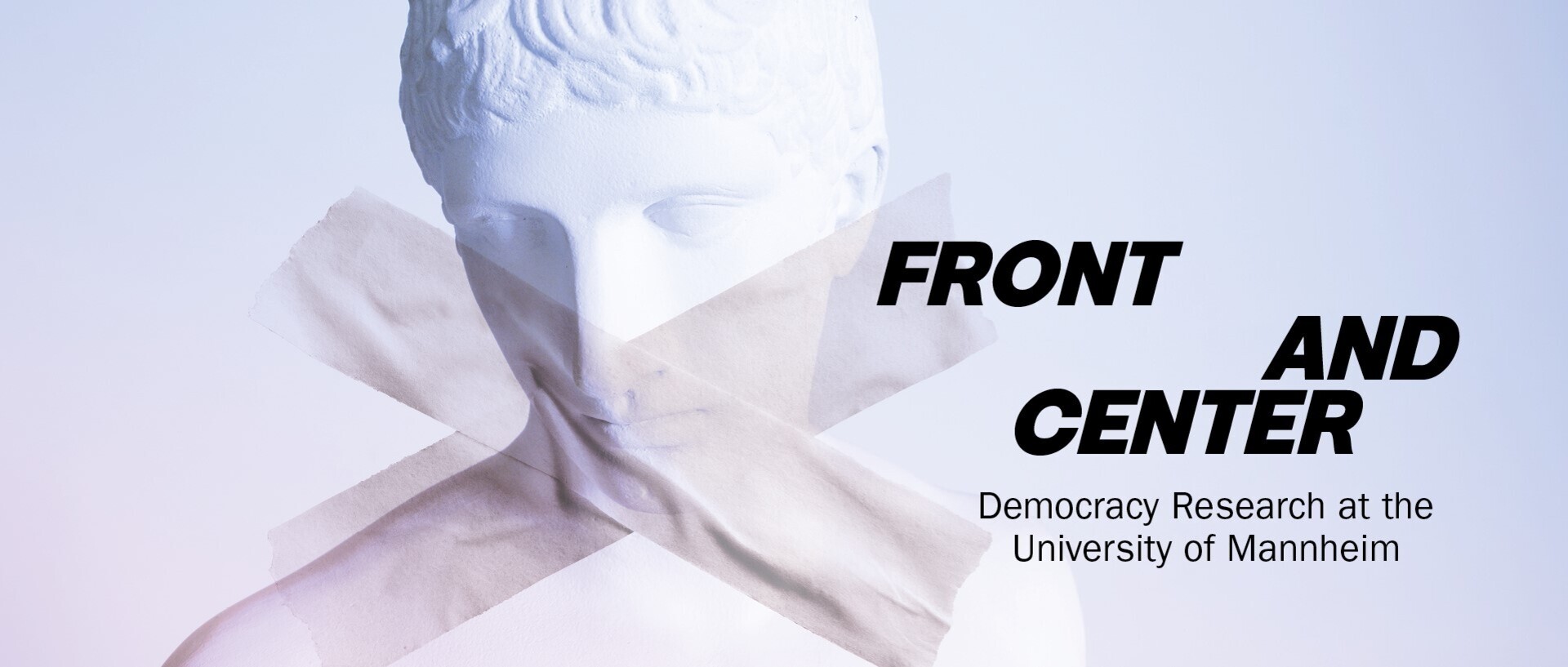Where Rhetoric Meets Quick Wit
Mention debating clubs, and most people picture U.S. high school movies or elite British universities. But competitive debating also thrives far beyond English-language film culture and educational settings. The Mannheim Debating Union, a student organization founded in 2007, champions both the German language and a vibrant culture of debate.

It’s a Wednesday evening in May, and anyone stepping into seminar room O 226–228 in the east wing of Mannheim Palace finds themselves in the thick of it: a weekly meeting of the university’s debating club. Members of the Mannheim Debating Union are chatting and laughing, sharing new merchandise, and club president Phil Mayr is setting up a quick presentation. The atmosphere is relaxed and informal—nothing suggests that the group is about to split into opposing camps for a verbal showdown.
Everyone is welcome at these weekly debates, regardless of age or academic discipline. No prior experience is required, as political science student and debating club member Sören Bürkle explains: “We offer introductory nights at the start of each semester—but you’re welcome to join any time. We give a quick overview at the beginning, and then you can jump right in.”
Government vs. opposition
Once the housekeeping is out of the way, the group votes on a category for that night’s topic. “Politics” and “Media” don’t make the cut this time—“Human Behavior” wins. After that has been decided, the president announces the motion: “Does self-praise do more harm than good?”

Roles are then assigned by lot. The format is known as Open Parliamentary Debate (OPD), where a “government” and an “opposition” argue for and against the motion. They’re given 15 minutes to prepare their speeches. Additional speakers—called “free speakers”—can support either side as they see fit.
Debating requires clear rules, of course, but the fun isn’t lost. Despite arguing opposing views, participants always treat one another with respect. Half-joking heckles and impromptu questions from the floor add a touch of levity—and provide opportunities for participants to sharpen their rhetorical skills along the way.
A jury keeps track of the arguments and ultimately declares a winner. Aside from eloquence, criteria include audience engagement, sound judgment, confident presence, and subject knowledge. On this night, the government’s arguments and performance are a bit more persuasive, resulting in a win by a slim margin.

Welcoming Baden-Württemberg’s interior minister
In addition to its weekly debates, the student organization also hosts larger debating tournaments. One mainstay is the annual “Wasserturmier”—a wordplay on Mannheim’s landmark water tower—which draws debating teams from across the region.
Moreover, the club regularly organizes public panels on current political issues. Most recently, the Mannheim Debating Union pulled off a major coup: In April, it hosted the Southern German Debating Championships. The two-day tournament featured a distinguished honorary jury, including Thomas Strobl, Baden-Württemberg’s Minister of the Interior, Dagmar Schmidt, head of SWR’s regional studio in Mannheim-Ludwigshafen, and Daniel Sommer, a former debater at the University of Heidelberg. “That was probably the biggest thing we’ve organized so far,” says Bürkle.
He was especially pleased by the level of public interest: “The German debating scene is working hard to gain more visibility,” he explains. As for the future, Bürkle hopes the Mannheim Debating Union will grow even further and establish itself more firmly on the competitive circuit. And perhaps, one day, when people think of debating, they won’t just picture U.S. high school movies or Oxbridge clubs—but also student organizations like the one right here in Mannheim.
Text: Tamara Gminsky / August 2025

The Mannheim Debating Union meets every Tuesday at 7 p.m. (English debate) and every Wednesday at 7 p.m. (German debate) in Room O 226–228 at the university’s Schloss campus. More information is available on their website.
